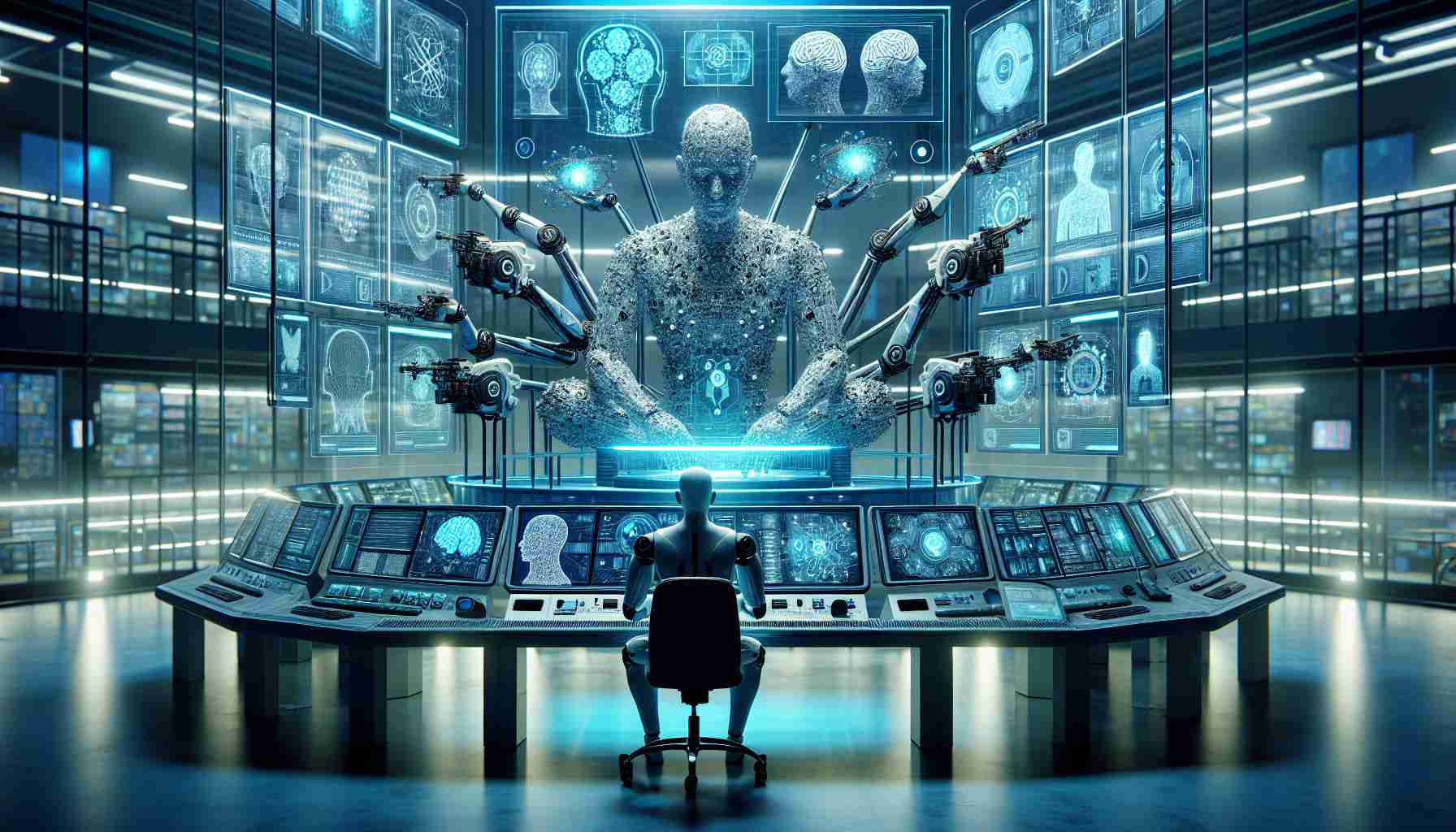Artificial Intelligence’s Ability to Resolve Complex Social Dilemmas
In an age where artificial intelligence (AI) systems, like chatbots, are becoming more integral to our daily interactions, one may ponder the extent to which such technology can address intricate human relationship issues. Investigating this notion, researchers are now looking beyond conventional IQ assessments, introducing the concept of ‘wise reasoning’ as a measurable trait within machine and human cognition alike.
Wise reasoning encompasses understanding the limits of personal knowledge, recognizing the changeability of situations, and appreciating diverse perspectives to reconcile conflict. This ability is vital for navigating the inevitable interpersonal frictions that arise in life—such as siblings disputing a memorial for a departed mother, couples drawing others into their arguments, or spouses clashing over bedtime routines.
Modern research suggests that individuals with a higher capacity for wise reasoning tend to have more fulfilling relationships, experience less depression, and report a greater overall life satisfaction. This theoretical framework reveals that our judgment can improve with life experience; however, attributes like these remain challenging to quantify. Additionally, cultural factors, such as the Japanese education system emphasizing intellectual humility, appear to influence the cultivation of wise reasoning across different age groups.
With AI, now researchers are extending their curiosity, probing whether platforms like OpenAI’s GPT models can demonstrate wisdom. In response to relational conflicts, these language models, which iterate based on extensive textual inputs and feedback, advise open communication, respect for boundaries, and suggest mediation when needed. Although preliminary findings are promising, they advise caution and further study to ascertain the true capabilities of AI in applying wise reasoning to real-world problems.
Artificial Intelligence’s Ability to Resolve Complex Social Dilemmas
The exploration of Artificial Intelligence (AI) within the realm of human social interactions involves examining the capacity of machines to exhibit wise reasoning, which is characterized by a range of socio-emotional and cognitive abilities. Wise reasoning includes an understanding of the limitations of one’s own knowledge, the ability to acknowledge and adapt to changing circumstances, and the recognition and appreciation of different perspectives to facilitate the resolution of conflicts. This is particularly significant for managing the common interpersonal issues that people encounter, such as disputes between siblings over family matters, disagreements within couples that may draw in third parties, or clashes between spouses over daily decisions like bedtime routines.
Recent research indicates that individuals who exhibit a higher degree of wise reasoning tend to have more satisfying personal relationships, lower levels of depression, and increased overall contentment with life. These findings suggest that wisdom, somewhat akin to emotional intelligence, can be developed over time through life experiences. Culturally, certain education systems, like that of Japan, may foster wise reasoning by focusing on virtues such as intellectual humility, which can influence how wisdom is nurtured in different populations and age groups.
In the AI field, there is growing curiosity about whether advanced AI systems, such as OpenAI’s GPT models, can show similar wisdom-related characteristics. These language models are trained on a vast corpus of text and continuously refined based on feedback, enabling them to provide advice on relational conflicts that may include promoting transparent communication, respect for personal boundaries, and proposing mediation if necessary. While initial results appear positive, researchers emphasize the need for caution and more comprehensive studies to fully understand the potential of AI in applying wise reasoning to complex social issues.
Key Questions, Challenges, and Controversies
One of the central questions in this domain is whether AI can genuinely comprehend and embody the nuances of wise reasoning, or if it is simply mimicking patterns found in human-written text. Another critical challenge is to ensure that AI systems are not biased in their advice and that they are capable of dealing with the intricacies of cultural diversity in human conflicts. There is also a controversy regarding the degree to which AI should be involved in personal matters, considering issues of privacy and the potential for manipulation.
Advantages and Disadvantages
The potential advantages of incorporating wise reasoning into AI include providing unbiased and well-considered advice on personal matters, offering scalable and accessible support for individuals in need, and potentially reducing the burden on human counseling services. On the other hand, disadvantages may involve the risk of AI misunderstanding complex human emotions and contexts, the possibility of exacerbating conflicts through inappropriate advice, and ethical concerns about the role of machines in such intimate areas of human life.
For related information exploring the capabilities and applications of AI, you might look at credible organizations and research institutions that focus on AI development and ethics, such as:
– OpenAI
– Association for the Advancement of Artificial Intelligence (AAAI)
– DeepLearning.ai
Each website offers a wealth of knowledge on current advancements and the projected trajectory of AI technologies. It is important to engage only with reputable sources to ensure the information is valid and up-to-date.
The source of the article is from the blog portaldoriograndense.com

